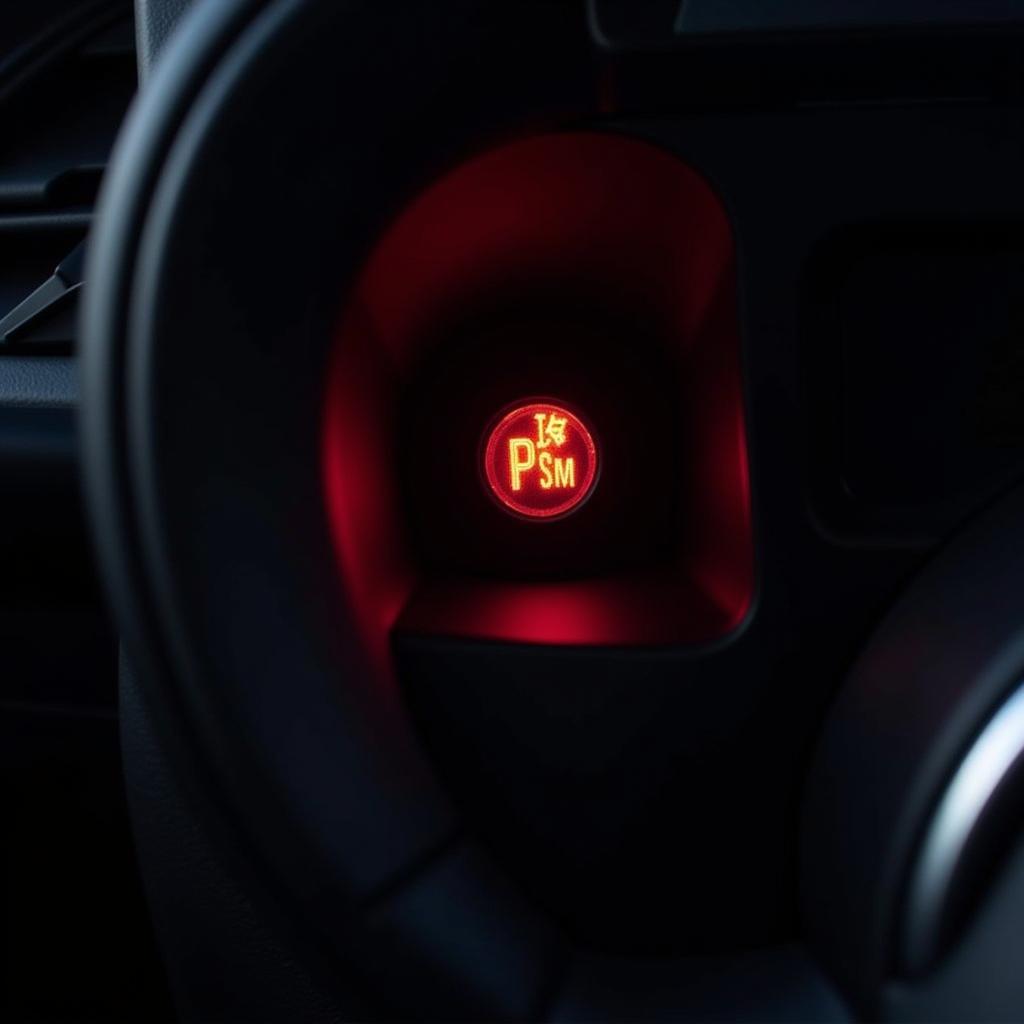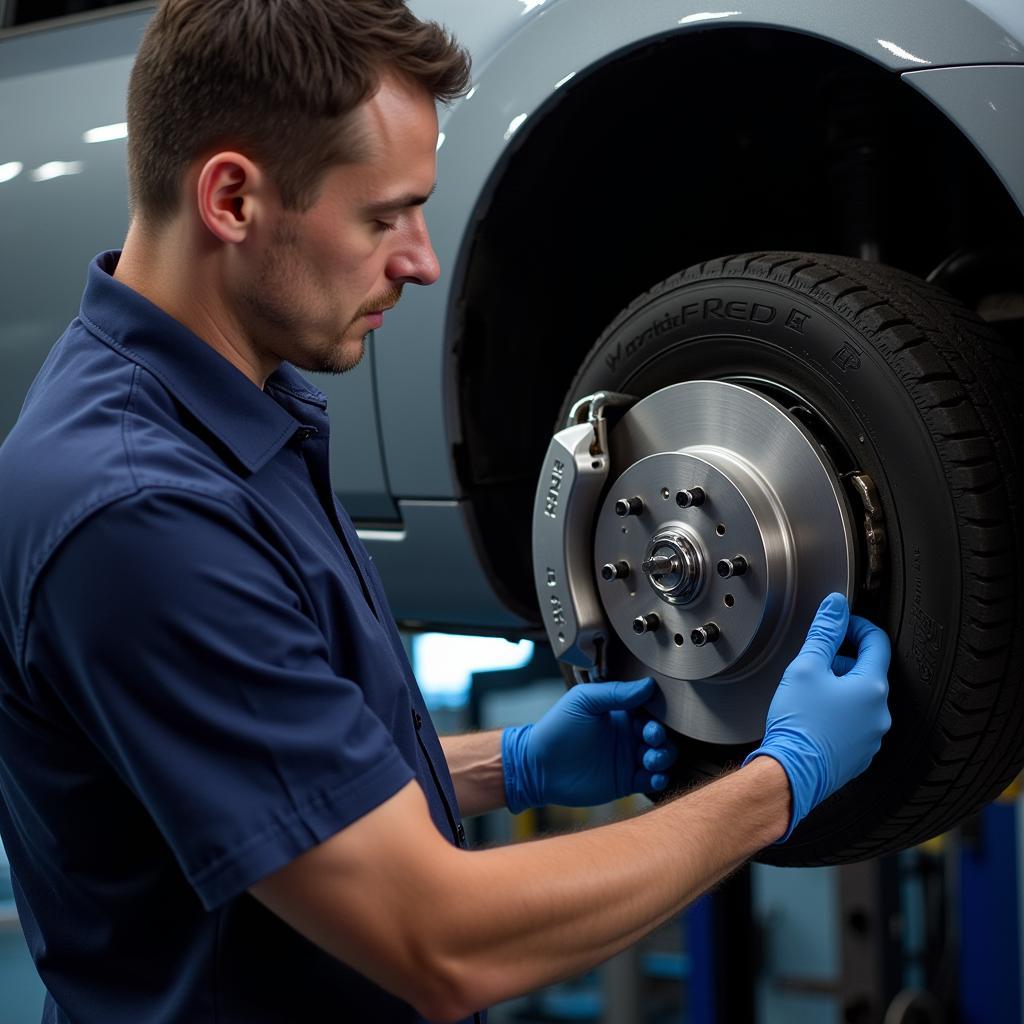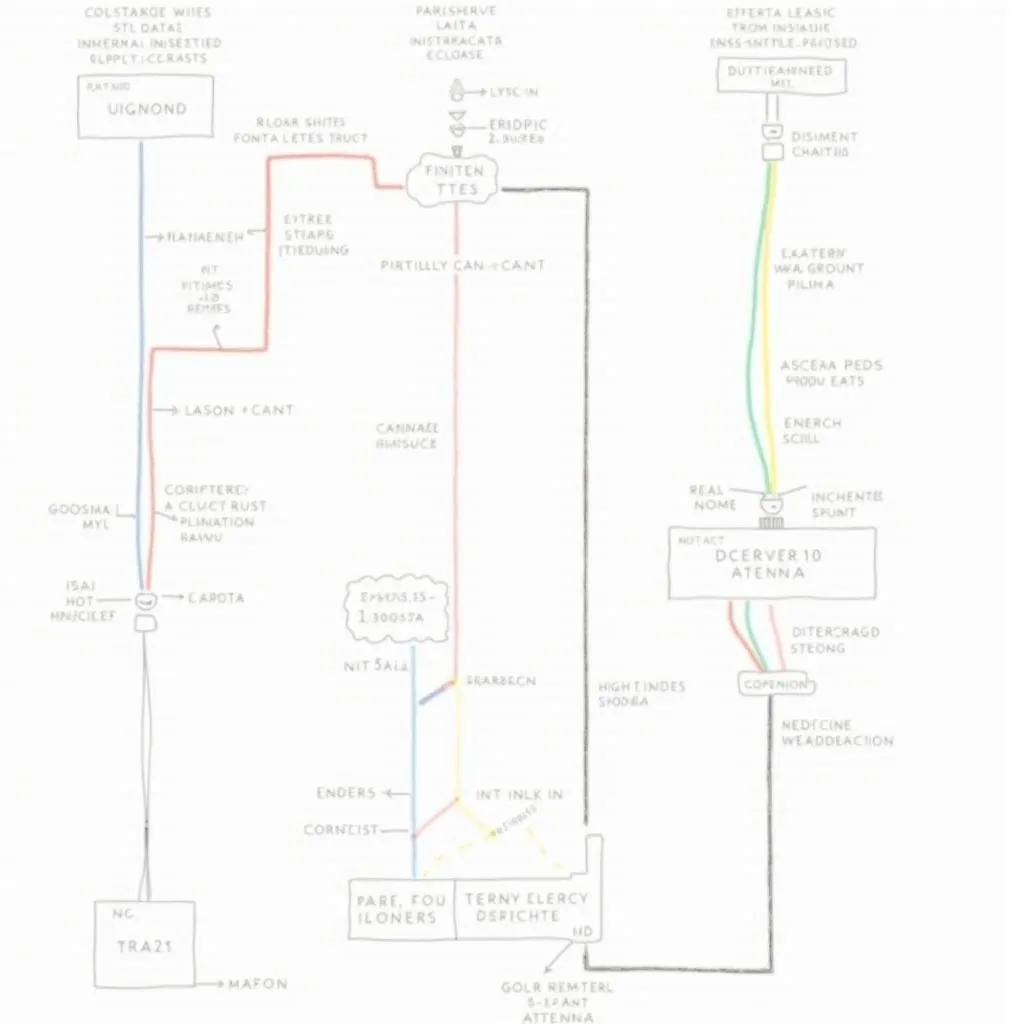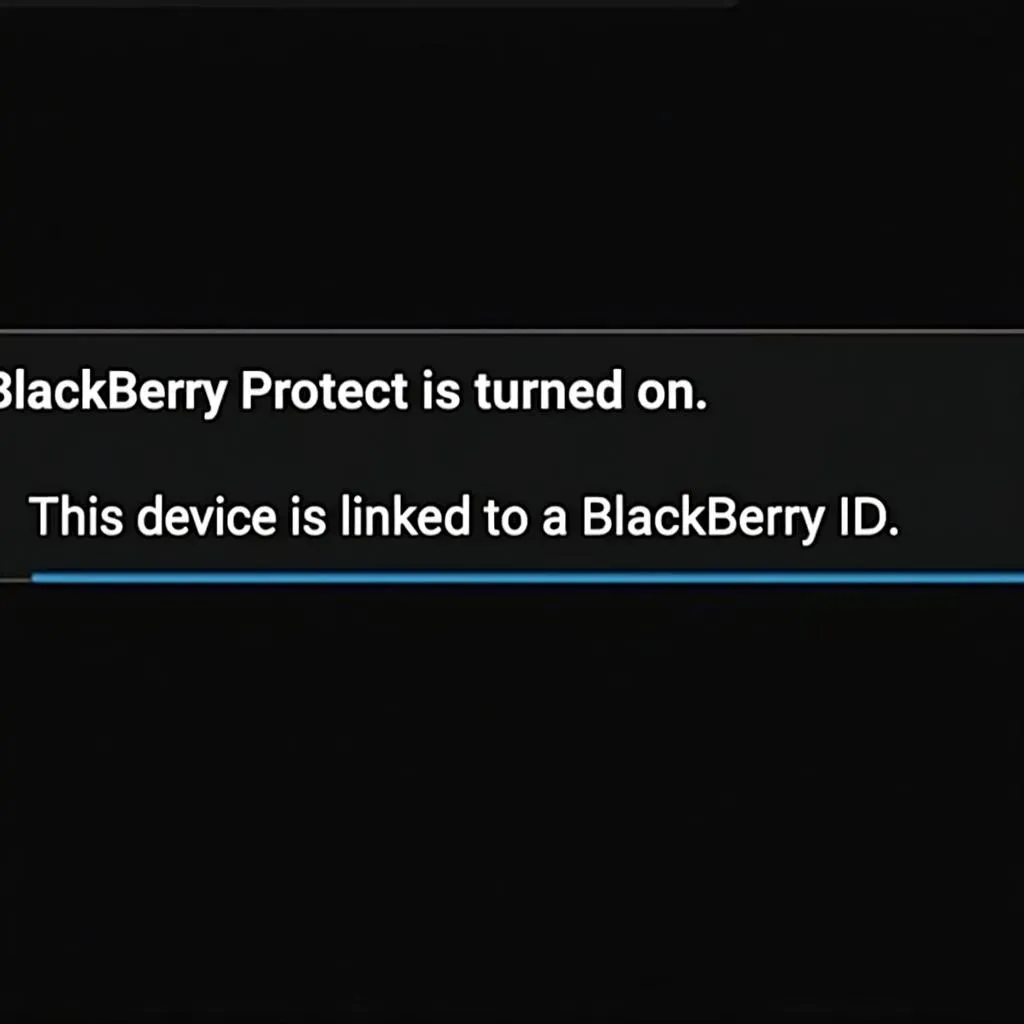The Nissan Leaf, like any other vehicle, relies on a complex network of sensors and systems to keep you safe. One of the most crucial is the braking system, and when the “Nissan Leaf brake warning light” illuminates on your dashboard, it’s a signal that requires your immediate attention. This article delves into the common causes of this warning light, helps you troubleshoot the issue, and provides guidance on the best course of action.
Understanding Your Nissan Leaf’s Brake Warning Light
While the appearance of a warning light on your dashboard can be concerning, it’s important to remember that it doesn’t always signify a major problem. The brake warning light in your Nissan Leaf can be triggered by several factors, ranging from a simple oversight to a more complex mechanical issue.
Here are the most common culprits:
- Parking Brake Engaged: It might seem obvious, but one of the most frequent reasons for the brake warning light to illuminate is an engaged parking brake. Always double-check your parking brake before driving.
- Low Brake Fluid: Brake fluid is the lifeblood of your Nissan Leaf’s braking system. A low fluid level, often caused by a leak, can significantly reduce braking efficiency and trigger the warning light.
- Worn Brake Pads: Brake pads naturally wear down over time. When they reach a certain level of wear, a sensor triggers the warning light, indicating it’s time for a replacement.
- Faulty Brake Light Switch: The brake light switch activates your brake lights when you press the brake pedal. A malfunctioning switch can disrupt this process and cause the warning light to appear.
- ABS Issue: The Anti-lock Braking System (ABS) is critical for maintaining control during hard braking. A fault within the ABS system can trigger the warning light and potentially compromise your safety.
 Nissan Leaf Dashboard with Brake Warning Light Illuminated
Nissan Leaf Dashboard with Brake Warning Light Illuminated
Troubleshooting Your Nissan Leaf’s Brake Warning Light
Before you assume the worst, try these troubleshooting steps:
- Check Your Parking Brake: Ensure your parking brake is fully disengaged. Sometimes, a slight bump can partially engage it.
- Inspect Brake Fluid Level: Locate the brake fluid reservoir under the hood (refer to your owner’s manual) and check the fluid level. If it’s low, add the recommended brake fluid type for your Nissan Leaf. However, be cautious of sudden drops in fluid level, which could indicate a leak.
- Examine Brake Lights: Ask someone to observe while you press the brake pedal. If the brake lights aren’t functioning correctly, the brake light switch might need replacement.
When to Seek Professional Help
If the troubleshooting steps don’t resolve the issue, or if you notice any of the following, it’s essential to seek professional help from a qualified mechanic or your Nissan dealership:
- Persistent Warning Light: If the brake warning light remains on despite trying the troubleshooting steps, it indicates an underlying issue that requires professional diagnosis.
- Soft or Spongy Brake Pedal: This could be a sign of air in the brake lines or a failing master cylinder, both requiring immediate attention.
- Grinding Noise When Braking: A grinding sound usually indicates severely worn brake pads that need immediate replacement to avoid damaging your brake rotors.
- Pulling to One Side While Braking: This suggests an imbalance in the braking system, possibly due to uneven brake pad wear, a stuck caliper, or a brake fluid leak.
 Mechanic Inspecting Nissan Leaf Brake System
Mechanic Inspecting Nissan Leaf Brake System
Importance of Timely Action
Ignoring your Nissan Leaf’s brake warning light can have serious consequences:
- Compromised Safety: A malfunctioning braking system puts you and others at risk.
- Increased Repair Costs: Delaying repairs can exacerbate the initial problem, leading to more extensive and expensive repairs later.
Maintaining Your Nissan Leaf’s Braking System
Regular maintenance is key to a healthy braking system:
- Regular Brake Inspections: Have your brakes inspected at least once a year or as recommended in your Nissan Leaf’s owner’s manual.
- Timely Brake Pad Replacement: Don’t wait for the warning light to replace worn brake pads.
- Quality Brake Fluid: Use high-quality brake fluid and have it flushed and replaced periodically to prevent corrosion and maintain optimal performance.
Remote Diagnostics and Software Solutions
In some instances, the brake warning light in your Nissan Leaf might be related to software glitches or sensor errors. At Car Diag Tech, we specialize in remote diagnostics and software solutions for various vehicle issues, including those that trigger the brake warning light.
Our expert technicians can remotely access your Nissan Leaf’s onboard computer system to:
- Diagnose the root cause of the warning light
- Identify and address any software glitches
- Perform software updates or reprogramming if necessary
what does the nissan leaf brake warning indicator light mean
Our remote services offer a convenient and cost-effective alternative to traditional mechanic visits, allowing us to diagnose and potentially resolve the issue without you needing to leave your home or office.
Expert Insight
“Many car owners underestimate the importance of regular brake system maintenance,” says John Smith, a senior automotive engineer at Car Diag Tech. “Timely inspections, fluid flushes, and part replacements can prevent major brake system failures and ensure your safety on the road.”
nissan leaf warning light on dash for brakes
Conclusion
The “Nissan Leaf brake warning light” is a crucial safety feature that should never be ignored. By understanding the common causes, performing basic troubleshooting, and seeking professional help when necessary, you can ensure the optimal function of your Nissan Leaf’s braking system and most importantly, your safety on the road.


